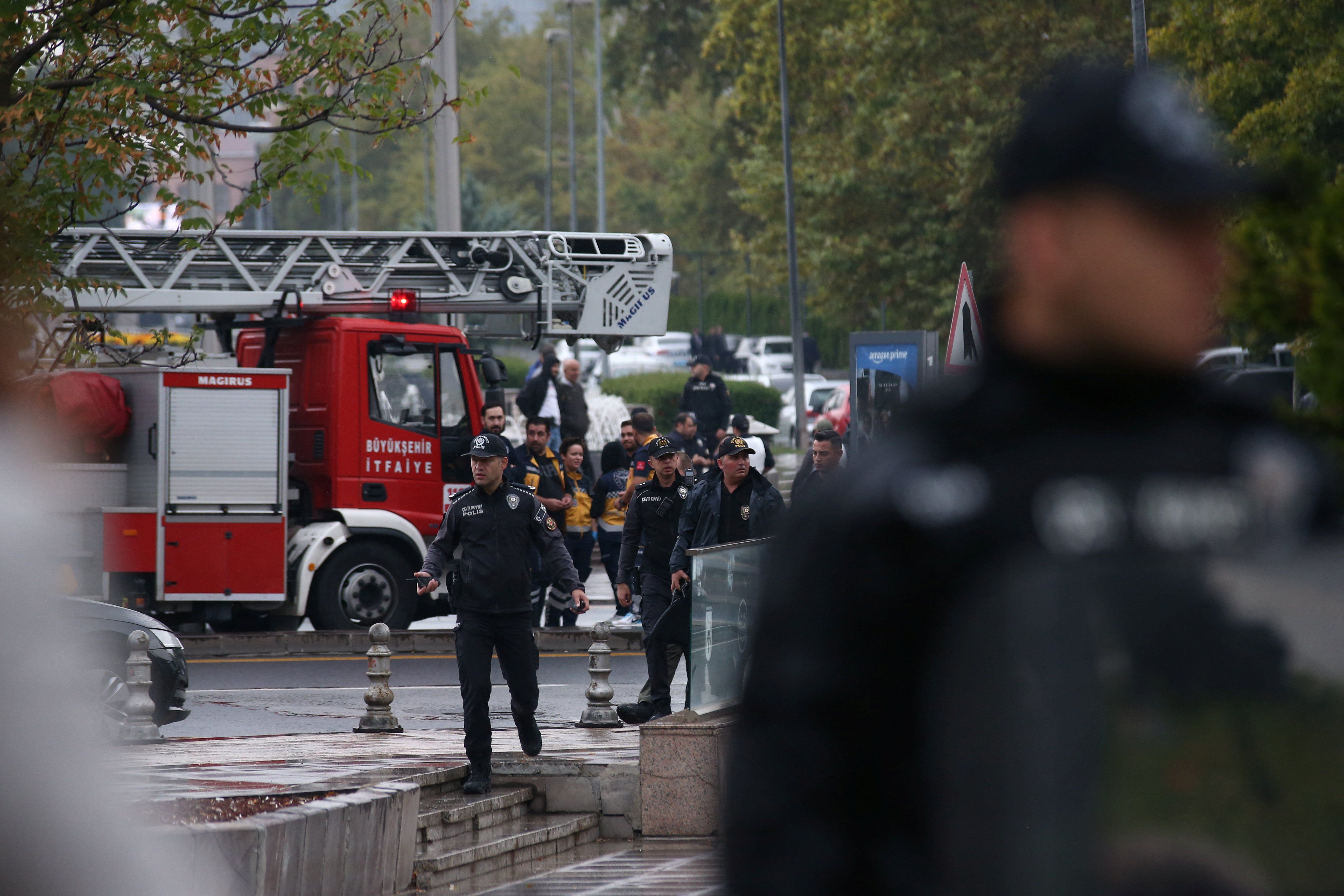Turkish warplanes on Sunday destroyed 20 suspected targets of the Kurdistan Workers’ Party, or PKK, in northern Iraq following a suicide bombing of the Turkish Ministry of Interior Affairs in Ankara for which the PKK claimed responsibility. Two police officers were injured and one of the bombers was killed in the assault.
The attack happened hours before Turkey’s Parliament was set to return from its summer recess. The legislature opened as planned, and a defiant Prime Minister Recep Tayyip Erdogan called the bombing “the last stand of terrorism” and vowed that “the scoundrels who targeted the peace and security of the citizens could not achieve their goals and they never will.”
The PKK, which is designated as a terrorist organization by Turkey, the United States, and the European Union, has conducted a number of attacks in Turkey together with the Islamic State group.
Erdogan also reiterated Turkey’s plans to create a 20-mile safe zone along its border with Syria to secure the area from attacks.
This Turkish parliamentary session is notably supposed to ratify Sweden’s membership in NATO, but Erdogan has not yet indicated when that is likely to take place.
